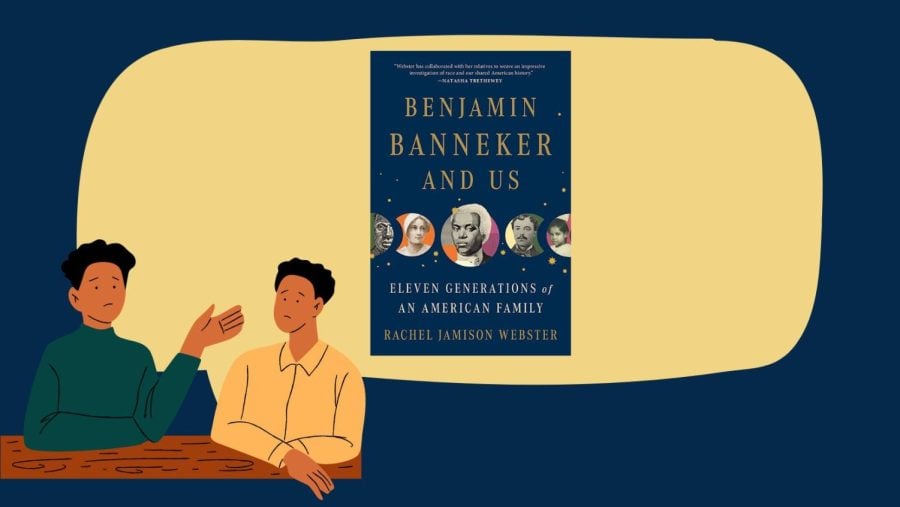Panelists discuss the importance of oral histories for Black Americans at One Book One Northwestern event
Illustration by Samantha Powers
English Prof. and author Rachel Jamison Webster spoke on a panel about her new book, “Benjamin Banneker and Us: Eleven Generations of an American Family,” as part of this academic year’s One Book One Northwestern event series.
May 18, 2023
One Book One Northwestern held a panel Thursday afternoon titled “Telling the Untold Stories: The Importance of Black Ancestry in American History.” Panelists discussed the importance of oral histories in Black storytelling.
Panelists included English Prof. Rachel Jamison Webster, who recently authored “Benjamin Banneker and Us: Eleven Generations of an American Family,” and her cousin and collaborator Robert Lett.
Webster’s book explores themes of ancestry, race and storytelling as she chronicles the history of her family, who are descended from Banneker ––an 18th-century African American mathematician and astronomer. She relied on her family members’ oral histories when writing the book.
“These are not just folk tales, and I do think that oral history is sometimes responded to in that way,” Webster said. “There’s a tremendous amount of rigor that families have with keeping these histories.”
Dino Robinson, production manager at NU Press and founder of the Shorefront Legacy Center, was also a panelist Thursday. Shorefront is dedicated to preserving the history of Black communities who have lived in Chicago’s North Shore area.
Robinson said in creating Shorefront, he hoped to interview Evanston’s Black residents in order to supplant the dominant narratives purported by “white-led” institutions with Black stories.
“I want to challenge the structure of who gets to tell the stories, who gets to hold and interpret these stories, and in the end, who gets to benefit from those stories,” Robinson said.
Webster added she found out she was a descendant of Banneker at a wedding. She said she was hesitant to tell the story of her family because although Banneker was a Black man, Webster herself is white.
To make the book’s narrative more holistic, Webster worked with four of her newfound cousins, Lett, Edith Lee Harris, Gwen Marable and Edwin Lee, to tell the story. Lett said many people in his family were happy to tell their story.
“I think it’s important that we all struggle to become in touch with our history,” Lett said. “In learning about it, you have to be prepared, because it’s not exactly the way you perceive it to be.”
Webster said oral histories help to challenge the narratives told by paper documents, which often preserve the image of those in power.
Webster said she used oral histories as a way to illuminate information lost in the histories of marginalized groups when writing her book. She said this method made storytelling a more collective process.
“The book is not an individual creation, the book is a conversation,” Webster said. “It really changed my whole notion of what it was to be an author.”
Robinson emphasized the importance of building relationships and trust with the communities spoken with when collecting oral histories.
Both Webster and Robinson encouraged younger students to interview their elders and collect their stories. Robinson said he missed many opportunities as a storyteller by failing to interview family members.
“These oral histories that are commonly told around a dining room table pass a huge impact on the younger generations,” Robinson said. “We might not think they’re listening, but they are.”
Email: [email protected]
Twitter: @sqpowers04
Related Stories:
— One Book One Northwestern hosts storytelling event
— Clint Smith discusses racial reckoning, slavery
— History Prof. Leslie Harris announced as One Book One Northwestern faculty chair


